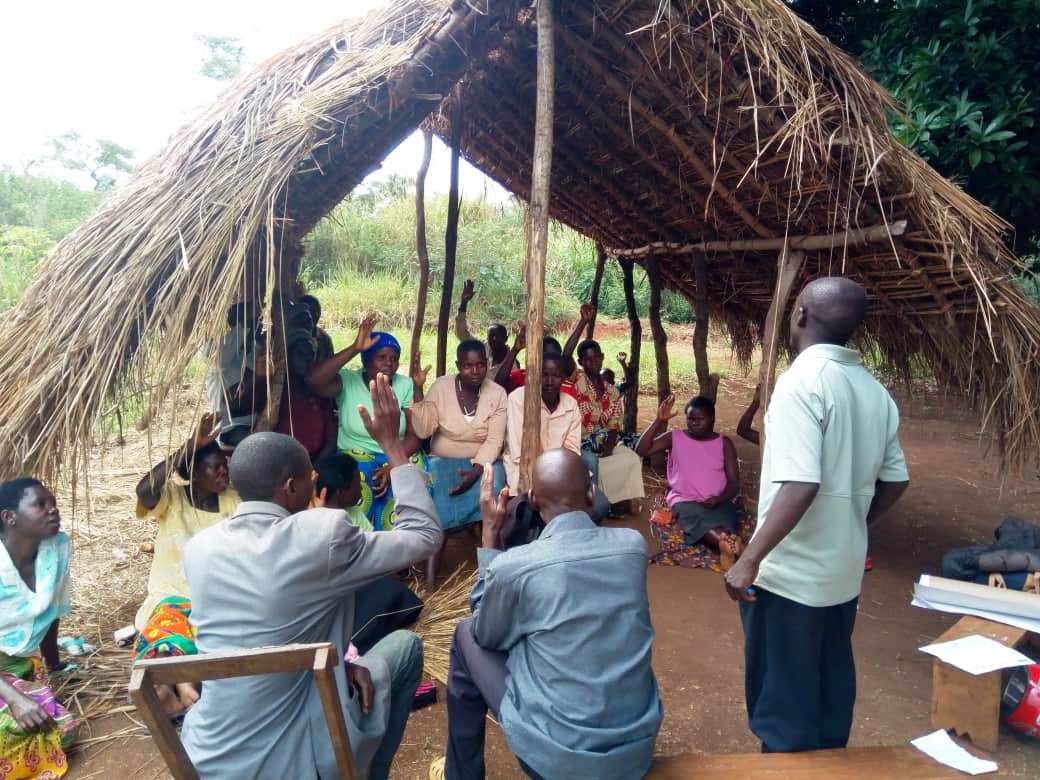”Community Adaptability To Loss Occasioned By Wildlife in Uganda” 2018 – 2021
Chimpanzee Trust is implementing the “Community Adaptability to Loss Occasioned by Wildlife project in Uganda” Project with financial support from Darwin Initiative. The project is aimed at establishing a community resilient fund to provide sustainable financing for the implementation of Human-Wildlife Conflicts (HWC) management. This intervention will be focused around communities in the Bugoma landscape working with communities living adjacent to Bugoma Central Forest Reserve (CFR), Kabwoya Wildlife Reserve (KWR) and private forests dotted across the landscape.
Conversion of forests to agriculture amplifies human-wildlife conflicts (HWC) including crop damage and attacks on humans. Uganda’s draft wildlife bill (2017) proposes compensation of loss occasioned by wildlife but there is insufficient in-country experience on how such schemes can be designed or if they can be successful.
HWC management interventions are guided by the Government of Uganda (GoU) policy and regulatory frameworks reflected in sector policies, laws, plans and regulations. The Government of Uganda is committed to ensuring harmonious co-existence between wildlife and people most especially the local communities living adjacent to wildlife protected areas and those living in areas with abundant wildlife outside protected areas. This commitment is reflected in several government policies, laws, plans and regulations.
The project components
Component 1: is focusing on developing and implementing an education and awareness strategy to influence adoption of adoption and mitigation mechanisms in the project operational community. The Trust is reaching 20 schools in the community (primary, secondary and post-secondary) and 32 villages. This component is aligned to HWC mitigation/avoidance rather than on attitudes towards conservation;

Educators workshop in Hoima District
Component 2: is establishing community-led livelihood projects that can raise resources to contribute to compensation of loss to damage occasioned by wildlife. The Trust is prioritizing on promoting 5 livelihood improvement business enterprises (Eco-tourism, mushroom growing, honey production, non-palatable high values crops, handcraft making and rearing goats) from which community groups can select not more than 2 enterprises. Participating members are to be organized into producer groups that will mobilize and allocate funds to an account/s established for compensation. Chimpanzee Trust will hire a sustainable financing design expert to structure the operational rules and regulation for compensation with input from local community members.

Maize plant
Component 3: will focus on documentation and dissemination of lessons, including project monitoring, evaluation and reporting. The project integrates support for research in partnership with Makerere University/BCFS to determine the effectiveness of the community-led compensation program and to generate results of publishable quality. Lessons and experiences will inform policymakers about the successes and constraints of community-led compensation programs

